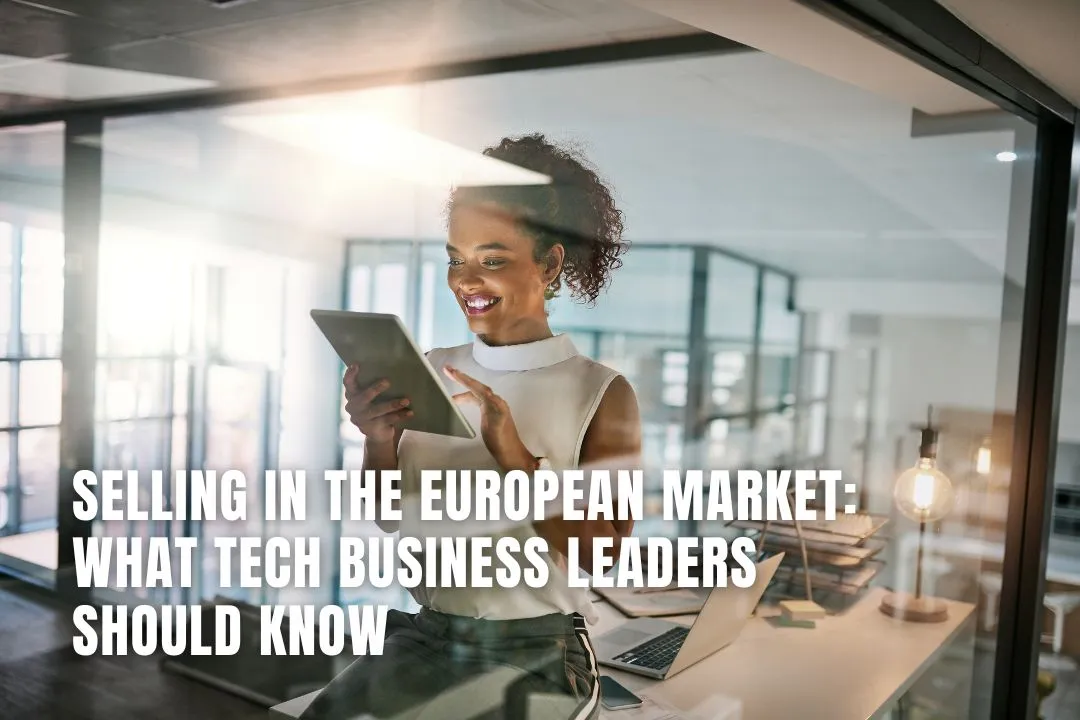
Editorial Disclaimer
This content is published for general information and editorial purposes only. It does not constitute financial, investment, or legal advice, nor should it be relied upon as such. Any mention of companies, platforms, or services does not imply endorsement or recommendation. We are not affiliated with, nor do we accept responsibility for, any third-party entities referenced. Financial markets and company circumstances can change rapidly. Readers should perform their own independent research and seek professional advice before making any financial or investment decisions.
If you own a business in the tech industry and you’re not selling in Europe, you’re probably doing something wrong. Then again, if you’re a tech company that’s afraid to get started in Europe, we understand.
Selling in the European market, especially as a non-European company, can be exhausting. After all, Europe has all these rules and policies that you must abide by to ensure ethical business practices and, most importantly, consumer safety.
For instance, the European Union (EU) is looking to put a ban on the use of PFAS in consumer products. This was bound to happen, given how hazardous PFAS is to public health.
Now, for tech companies, selling in Europe can be challenging. Yet, if business leaders know how to navigate certain obstacles, it need not be so.
Have you noticed how Europe isn’t just one unified market? It’s a collection of countries with their own preferences, regulations, and business cultures. Of course, some regulations are directly overseen by the European Union (EU), but still, countries also have their own preferences.
What works in Germany might not land well in Italy. The decision-making pace in France may differ from that in the Netherlands. If you’re running a tech company used to fast turnarounds, you might need to dial it down and adopt a slightly more patient approach. This doesn't mean changing your identity. It just means adapting your strategy.
You’ve got to localise your product, your messaging, and even your customer support. Europeans tend to value quality and transparency over flash. They also take privacy very seriously; something that leads us directly into the next major concern: compliance.
Selling tech products in Europe means playing by Europe’s rules. The EU has some of the most stringent compliance requirements in the world, particularly when it comes to product safety, environmental impact, and privacy.
For instance, right now, the EU is very strict about common charging ports in mobile phones. Hence, such new devices sold in the EU must now support USB-C charging. This is a step to minimise electronic waste by eliminating the need for multiple chargers with varying ports.
If your business deals in any kind of physical tech, like chargers, you’ll have to go through specific testing processes before you can sell. As a result, electrical product testing becomes crucial in this regard. There are labs that specialise in electrical safety testing, electrical product safety testing, and helping companies meet necessary standards.
According to QIMA, these labs work with a wide range of electrical as well as electronic products. They are equipped with advanced laboratory equipment to carry out these tests accurately. Partnering with them early can save you from costly recalls or legal trouble down the line.
You’ve probably heard of GDPR. But what you might not know is just how seriously it’s taken in Europe. It’s not a suggestion; it’s the law, and the penalties for non-compliance can be severe.
If your tech product collects, stores, or processes user data in any way, you need to make sure you’ve got airtight policies in place. These policies are there to comply with EU data protection laws.
That means being transparent with your users when collecting or using their data. It also means only collecting the data you absolutely need and making it easy for people to understand what you're doing with their information.
You’ll also want to think about whether you’re relying on any third-party tools that may fall outside the EU's regulatory umbrella. For European users, trust is a big deal. If your product doesn’t respect that, it’s going to be tough to build a loyal customer base.
Expanding into Europe isn’t something you should do alone. Finding local partners, consultants, and employees who understand the market can help you avoid a lot of rookie mistakes. Whether it’s a legal advisor or a customer support team, it’s worth integrating local know-how into your operation.
You don’t have to set up shop in every country right away. Many tech companies start with one or two markets where they see the most opportunity and expand from there. The key is to choose wisely based on your product-market fit, not just which countries seem cool or convenient.
If you’re serious about entering Europe, treat it like a long-term investment. It’s not the kind of market where you can test the waters and expect overnight success. But if you take the time to understand the terrain, follow the rules, and respect the culture, the payoff can be huge.
Whether you're a startup or a growing mid-size tech company, the European market could be your next big chapter. Just make sure you're ready for it.